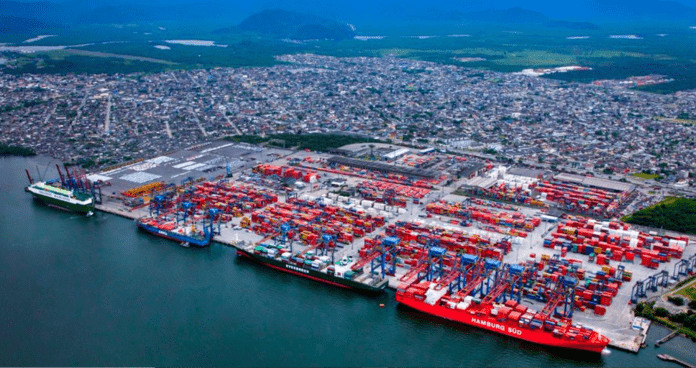
Maersk is taking legal and strategic action to challenge Brazil’s bidding restrictions for a massive new container terminal at Latin America’s largest port, the Port of Santos.
MSC Group, through its port subsidiary Terminal Investment Limited (TIL), has indicated it may also pursue legal action if the TCU does not alter the bidding criteria. According to Patricio Junior, TIL’s regional investment director, the current framework unfairly restricts participation and may undermine the competitiveness of the project.
According to Reuters, the rules bar current operators of container terminals at Santos from participating in the first round of bidding for the Tecon 10 terminal, a project expected to require US$1 billion in investment.
On Monday, Maersk filed a lawsuit in São Paulo against Brazil’s marine transport regulator, Antaq, and its general director, seeking “procedural corrections” to ensure what the company called a “fair and transparent process” for assigning the new terminal.
Maersk stated that excluding companies with broad international experience, responsible for managing some of the most efficient ports globally, without thorough studies to support such a decision, significantly diminishes the project’s potential at Latin America’s largest port.
The auction, billed by Antaq as the largest port tender in Brazil’s history, is designed to attract new players to the Santos complex by excluding current terminal operators from the first round.
While Antaq maintains the rules are intended to promote competition, critics argue the restrictions could favor less experienced entrants and reduce the quality of bids.
Asian shipping lines and Brazilian newcomer JBS Terminais, the port subsidiary of meatpacker JBS, are seen as potential beneficiaries.
Industry stakeholders have also expressed concern.
Eduardo Heron, Technical Director of the Brazilian Coffee Exporters Council, said the council is advocating for broad and unrestricted participation in the bidding process, emphasizing the importance of open competition for national trade interests.





